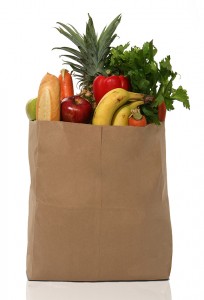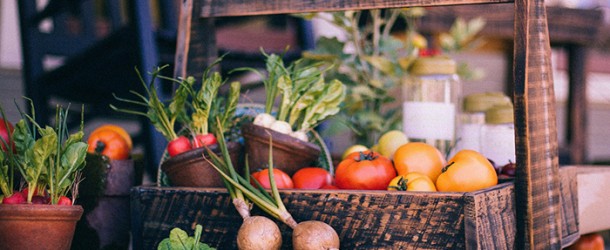 As the cost of living is going up and our grocery budget is getting tighter, buying organic is a huge turnoff for many of us. Despite their established popularity, organic items are still generally more expensive than conventionally grown foods, so choosing products that are good for our body and environment can be a challenging – and very frustrating – task.
As the cost of living is going up and our grocery budget is getting tighter, buying organic is a huge turnoff for many of us. Despite their established popularity, organic items are still generally more expensive than conventionally grown foods, so choosing products that are good for our body and environment can be a challenging – and very frustrating – task.
Luckily, there are ways to shop smarter and make your healthy organic diet more affordable and therefore, more pleasurable.
Here are 8 budget-friendly tips to whole-foods plant-based diet shopping:
EAT SEASONAL
For optimal nutrition and taste: eating seasonal means you will get the best quality, nutrient dense, flavorful foods available at a given season.
- Spring is the period of the year when your body recovers and cleanses from winter heavier meals. That is why it is ideal to enjoy the new growths such as tender leafy greens such (spinach, lettuces, Swiss chard, early peas, etc.) and pick the freshest herbs like basil, parsley, and dill.
- In summer, you’ll want to help your body stay cool and active with lighter produce such tomatoes, juicy fruits and cooling herbs like mint or cilantro.
- Prepare your digestive system to cooked and fuller winter meals in fall is by eating roots and tubers such as potatoes, carrots, sweet potatoes, onions, and garlic.
- In winter, hearty harvested foods and warming starchy vegetables may be your best choice.
For the environment: seasonal growing and harvesting guarantees natural diversity and is necessary in order to respect the soil’s balance and conserve its fertility.
For your wallet: buying seasonally is more cost-effective because of the high availability and demand of a certain produce during its natural time of growth.
VISIT YOUR LOCAL ORGANIC FARMER’S MARKET
The direct-to-consumer market generally ensures you to get fresher (shorter time between the farm and your table) and cheaper produce (there are no third-parties – such as grocery stores – involved).
FLASH-FREEZE
Flash freezing enables you to save your favorite foods for later and can often provide you with more nutrients than fresh produce, as studies say.
For more details on how to flash freeze, click here.
buy in BULK
Grains, seeds, nuts, beans and legumes do not spoil as fast as fresh produce and can be stored easily for months or even years. In addition to being a more eco-friendly alternative to smaller individual packages (think less plastic/paper/resources and less trips), buying in bulk will help you save big bucks in the long-term because of a smaller per unit or per pound cost. Find a grocer that sells in buck supplies or partner with a friend and share the costs of purchase and transportation.
BEWARE OF THE CAN
Canned beans and legumes are a cheaper AND more convenient alternative to dry beans and legumes. However, most companies still use BPA (bisphenol-A) – a harmful chemical linked to cancer – and tend to add extremely high amounts of salt, sugar and preservatives.
So make sure to always:
- check the expiration date to avoid tin exposure and spoilage,
- choose low or no sodium and no added sugars and preservatives,
- purchase BPA-free lining cans only and make sure you pick not dented, bulging or bloated cans as those can be highly dangerous.
AVOID PACKING YOUR CARTS WITH “HEALTHY” SNACKS
Even when organic, “healthy” snacks tend to contain ridiculous amounts of salt and sugar. Keep those to a minimum and go for healthier options: organic dried fruits and berries, such as goji or mulberries make for great snacks.
AVOID PACKAGED NON-DAIRY MILK
We plant-eaters LOVE our non-dairy milk. More the reason to get the healthiest and freshest version and avoid the processed alternatives, which unfortunately do not contain much nutritive value. Additionally, those beverages can contain added sugars, oils and thickening agent, as well as additives such as guar gum and carrageenan that can be problematic for some with digestive issues.
Good news: homemade non-dairy milk is cheaper and about the quickest and easiest thing in the world to make.
DON’T GO SHOPPING AROUND CLOSING TIME
Most grocers arrange their produce right before opening hours, making the fresh foods mostly available in the morning. Isn’t it better to pick from a variety of beautiful lettuces than having to grab the last, leaky, bruised unit on display? So get the most of your trips, plan your grocery shopping and other errands on your day off and ideally before noon (fresher mind and fresher foods).
